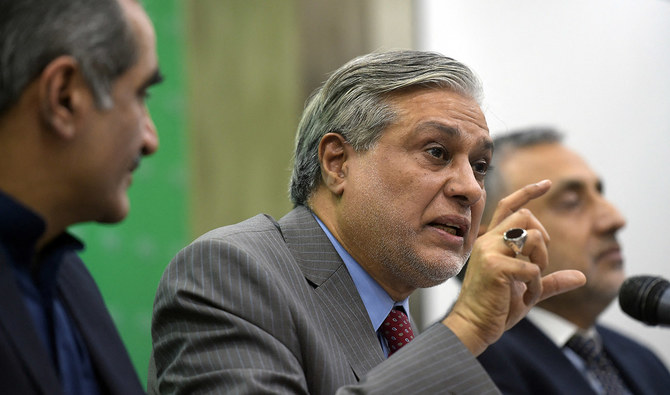ISLAMABAD: The Abu Dhabi Fund for Development (ADFD) has rolled over its existing deposits of $2 billion in Pakistan’s central bank, Finance Minister Ishaq Dar announced on Wednesday, a move bound to bring some relief to the cash-strapped country.
The development follows closely behind Prime Minister Shehbaz Sharif’s two-day visit to the Gulf country last week. Sharif met UAE President Sheikh Mohammed bin Zayed Al Nahyan and other senior leaders during his official trip. During the meeting, the UAE president agreed to lend Pakistan an additional $1 billion and roll over its existing loan of $2 billion, Pakistan’s information minister had said.
Pakistan, still reeling from last year’s devastating floods that caused damages of more than $30 billion, is actively seeking external financing from allies and multilateral organizations. Talks between Pakistan and the International Monetary Fund (IMF) for a tranche of $1.1 billion loan have remained suspended since September 2021.
On Wednesday, the governor of Pakistan’s central bank said the country expected to receive dollar inflows from “next week,” without specifying where it would get them from or the exact amount.
“Abu Dhabi Fund for Development (ADFD) has rolled over their deposit of $2 billion with State Bank of Pakistan,” Dar wrote on Twitter.
https://twitter.com/MIshaqDar50/status/1615754705900298241
The South Asian country, already grappling with surging inflation and rising energy prices, is also worried about its dwindling foreign exchange reserves. According to official data, Pakistan’s central bank has total liquid reserves of $10.18 billion reserves and $4.3 billion in net reserves, enough for only a month’s imports.
Earlier this month, Crown Prince Mohammed bin Salman issued directives to Saudi authorities to study increasing the Kingdom’s investments in Pakistan to $10 billion. He also directed the Saudi Fund for Development to study increasing the Saudi deposit to Pakistan’s central bank to reach $5 billion.
Pakistan has maintained close ties with Saudi Arabia and the UAE, where millions of Pakistani expatriates live and work in the kingdom. Both countries serve as an important source of remittances for the South Asian country. Abu Dhabi and Riyadh have come to Pakistan’s financial aid whenever Islamabad finds itself in desperate need of external financing.
















